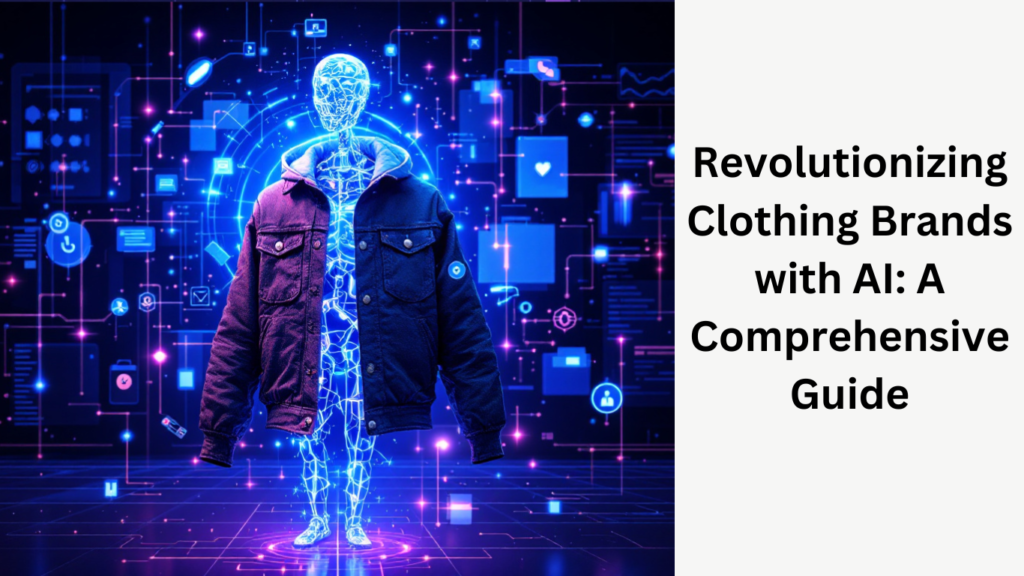Revolutionizing Clothing Brands with AI: A Comprehensive Guide

Introduction to AI in the Clothing Industry
AI is revolutionizing the clothing industry by providing data-driven insights, automating processes, and enhancing customer experiences. From personalized recommendations to inventory management, AI helps brands stay competitive and meet the ever-changing demands of consumers.
Personalized Recommendations and Customer Experience
Enhancing Customer Experience with AI
AI-powered personalization engines analyze customer data to provide tailored recommendations. By understanding individual preferences, AI can suggest products that align with a customer’s style and needs, increasing the likelihood of a purchase.
Implementing AI for Personalized Recommendations
- Data Collection: Gather data on customer preferences, purchase history, and browsing behavior.
- AI Algorithms: Use machine learning algorithms to analyze data and generate personalized recommendations.
- Real-Time Updates: Ensure recommendations are updated in real-time to reflect current trends and customer behavior.
Inventory Management and Demand Forecasting
Optimizing Inventory with AI
AI can help clothing brands optimize inventory levels by predicting demand and managing stock efficiently. This reduces overstock and stockouts, ensuring that popular items are always available.
Steps to Implement AI for Inventory Management
- Demand Forecasting: Use AI to analyze historical sales data and predict future demand.
- Automated Reordering: Implement automated reordering systems to ensure popular items are restocked in time.
- Real-Time Monitoring: Monitor inventory levels in real-time to make data-driven decisions.
AI-Driven Marketing and Customer Engagement
Leveraging AI for Marketing
AI can enhance marketing efforts by providing insights into customer behavior and preferences. This allows brands to create targeted campaigns that resonate with their audience.
Implementing AI for Marketing and Engagement
- Customer Segmentation: Use AI to segment customers based on their behavior and preferences.
- Personalized Campaigns: Create personalized marketing campaigns tailored to each customer segment.
- Engagement Analysis: Analyze customer engagement to refine marketing strategies and improve effectiveness.
Sustainability and Ethical Practices
Promoting Sustainability with AI
AI can help clothing brands promote sustainability by optimizing supply chains, reducing waste, and ensuring ethical practices. This not only benefits the environment but also appeals to eco-conscious consumers.
Steps to Implement AI for Sustainability
- Supply Chain Optimization: Use AI to optimize supply chains and reduce waste.
- Ethical Sourcing: Implement AI to ensure ethical sourcing of materials and labor practices.
- Transparency: Use AI to provide transparency in the supply chain, building trust with consumers.
FAQs
How can AI help clothing brands with personalized recommendations?
AI can analyze customer data to provide tailored recommendations based on individual preferences, purchase history, and browsing behavior. This increases the likelihood of a purchase and enhances the customer experience.
What are the benefits of using AI for inventory management?
AI can help clothing brands optimize inventory levels by predicting demand and managing stock efficiently. This reduces overstock and stockouts, ensuring that popular items are always available.
How does AI enhance marketing efforts for clothing brands?
AI provides insights into customer behavior and preferences, allowing brands to create targeted marketing campaigns that resonate with their audience. This improves engagement and effectiveness.
How can AI promote sustainability in the clothing industry?
AI can help clothing brands promote sustainability by optimizing supply chains, reducing waste, and ensuring ethical practices. This not only benefits the environment but also appeals to eco-conscious consumers.
What are the key steps to implement AI in a clothing brand?
Key steps include data collection, implementing AI algorithms, real-time monitoring, customer segmentation, personalized campaigns, and ensuring transparency in the supply chain.
Conclusion
AI is transforming the clothing industry by providing data-driven insights, enhancing customer experiences, and driving innovation. By integrating AI into your business, you can stay competitive, meet customer demands, and promote sustainability. Embrace the power of AI to revolutionize your clothing brand and achieve long-term success.